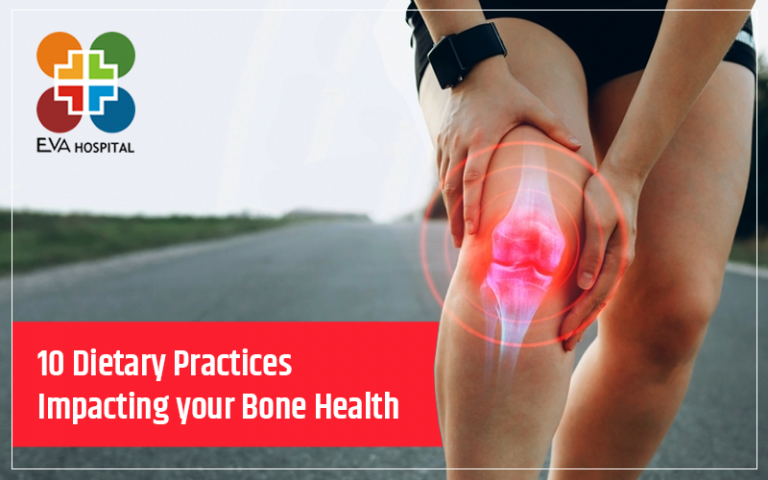
10 Dietary Practices Impacting your Bone Health
Your bones, which are highly instrumental in maintaining your well-being, are made up of calcium, magnesium, phosphorus, vitamin D, potassium, and protein. A diet rich in the above-mentioned nutrients is key to maintaining bone health and density. This is why experts typically advise you to maintain a diet consisting of green vegetables, citrus fruit, seafood, nuts, and dairy products.
While being aware of what to eat is very important, it is equally important to know what sort of foods may be adversely impacting you, in order to maintain a lifetime of bone health.
What foods should you avoid?
For better bone health, experts recommend you avoid the below-mentioned foods:
Salt: The more salt you use, the more calcium you lose. Food with high salt is not good for bones as they lead to calcium erosion through the kidneys and keep it below 2,300 milligrams a day. Food with high salt can cause bone thinning osteoporosis and high blood pressure.
Sugar: For most of your sugar intake, it is recommended that you rely on fruits. Consuming sugar-based products fiddles with your capacity to have nutrition-rich food because the former has the tendency to overwhelm your system.
Kidney beans: Kidney beans are rich in zinc, protein and magnetism. But, they also contain phytates which hinder the calcium absorption given by beans. Have them in moderation.
Caffeine consumption: Consuming caffeine daily is harmful as it causes anxiety, the spike in heart rate, and insomnia. Caffeine leaches calcium from bones, sapping their strength. In fact, roughly 6 milligrams of calcium is lost for every 100 milligrams of caffeine you ingest.
Alcohol consumption: Alcohol consumption decreases bone mass and thus must be strictly avoided.
Raw spinach: Eating raw spinach and other forms of chard have oxalates that prevent the absorption of calcium from the spinach. Remember, spinach is high on Vitamin A, C, K and iron.
Excessive vitamin A
Recent research done on the subject shows a link between excessive consumption of Vitamin A and an increased risk of bone fractures.
Wheat bran
Wheat bran contains high levels of phytates. This can hinder calcium absorption.
Soda
Excessive consumption of soda is also associated with a reduction in bone mineral density. It can also increase the risk of fracture.
Inflammatory foods
Nightshade vegetables are known to cause bone inflammation, leading to osteoporosis. This is why their excessive use is to be avoided. Nightshade vegetables include tomatoes, mushrooms, peppers, white potatoes, and eggplant. Tobacco is also in the nightshade family.







